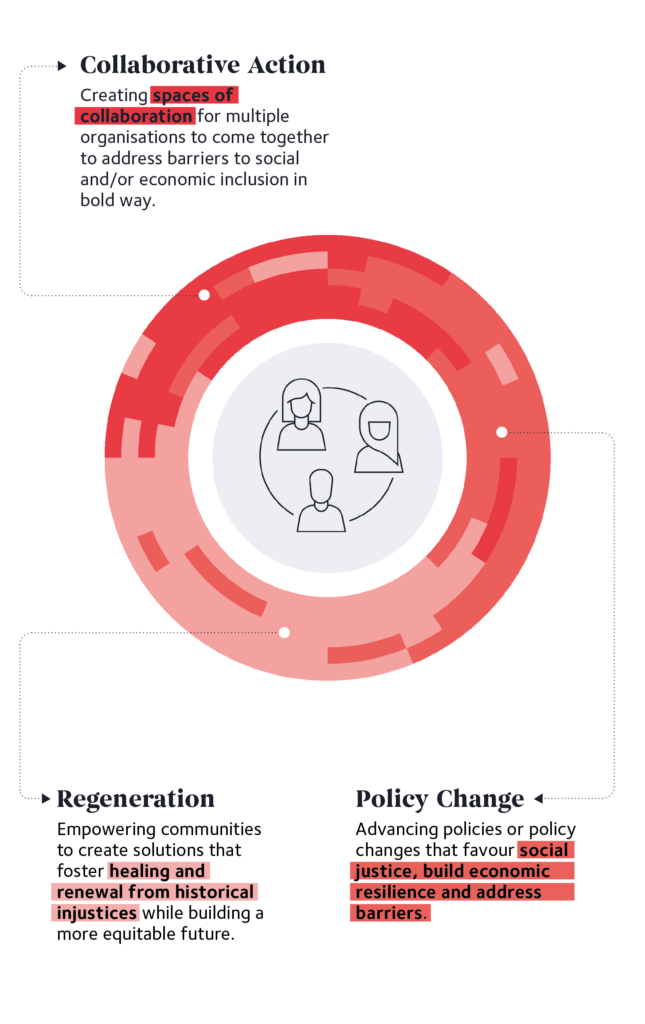Our Approach
We see community as a group that shares common barriers, needs, and goals, whether defined by geography, identity, interest, or other commonalities.
Our communities focus area aims to partner with equity-denied groups to support their path toward greater equity and justice. An equity-denied group refers to those whose access to resources, opportunities, or social benefits has historically been denied due to systemic inequities.
We also acknowledge the importance of intersectionality: the experience of interconnected forms of discrimination, acknowledging that people live with overlapping social identities such as race, gender, class, sexual orientation, ability, and religion.










